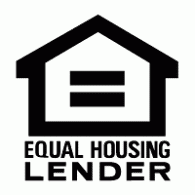In today’s ever-evolving financial landscape, small and medium-sized businesses (SMBs) often find themselves in need of additional financing to support their growth, manage cash flow, or navigate challenging times. However, traditional loans aren’t always accessible for every business, particularly those that don’t fit the mold of conventional lending requirements. Enter the business bank statement loan in Scottsdale, Arizona, a financial product designed to cater to businesses that may not have the typical documentation required by traditional lenders but have strong, consistent cash flow.
This blog delves into the key eligibility criteria for a business bank statement loan in Scottsdale, Arizona, exploring who qualifies, the role of bank statements in the application process, and other important financial considerations.
Understanding Business Bank Statement Loans In Scottsdale, Arizona
A business bank statement loan is a type of financing in which lenders evaluate a business’s eligibility primarily based on its bank statements rather than more traditional documentation like tax returns or financial statements. Bank statement loans are an attractive option for businesses that have difficulty qualifying for traditional loans due to the nature of their income, seasonal fluctuations, or other factors.
These loans are particularly useful for businesses with significant cash flow but irregular or unverified income and those who may not have a high credit score but can demonstrate financial stability through their bank statements.
Key Eligibility Criteria for a Business Bank Statement Loan
1. Consistent Cash Flow
One of the most critical factors lenders consider when considering a business bank statement loan application is the business’s cash flow. Lenders want to see that the business consistently generates enough revenue to cover loan repayments. Enter bank statements loans.
Typically, lenders request 12 to 24 months of bank statements to analyze the cash flow. They will look for regular deposits reflecting the business’s income and assess whether it has enough liquidity to handle the additional debt. Irregular or sporadic cash flow might be a red flag unless it can be explained by the nature of the business, such as seasonal variations.
Key Takeaway: Ensure your business has a stable cash flow that is well-documented in your bank statements before applying for a business bank statement loan.
2. Type of Business
While business bank statement loans in Scottsdale, Phoenix, Arizona are available to various businesses, some industries may be more likely to qualify than others. Typically, businesses with predictable cash flow patterns, such as retail, hospitality, and service-based industries, are well-suited for this type of loan. However, more volatile industries might also qualify, provided they can demonstrate sufficient cash flow.
Additionally, businesses that deal largely in cash, such as restaurants or certain retail shops, might find business bank statement loans more accessible since traditional loans often require documentation that these businesses might not have readily available.
Key Takeaway: The nature of your business can influence your eligibility, with those having predictable cash flows standing a better chance of approval.
3. Time in Business
Lenders offering bank statement loans for Entrepreneurs typically require that a business has been operational for a minimum period, often at least two years. The reason is simple: the longer a business has been around, the more data the lender has to assess its financial stability and longevity.
Newer businesses might find it more challenging to qualify for a business bank statement loan unless they can demonstrate strong, consistent cash flow from the outset.
Key Takeaway: Longevity in business enhances your chances of qualifying, with most lenders preferring companies that have been in operation for at least one to two years.
4. Bank Statement Requirements
Since bank statements are the primary documentation required for this type of loan, they play a crucial role in the application process. Lenders will scrutinize your bank statements for a variety of factors, including:
Average Monthly Deposits: Lenders want a consistent deposit pattern indicating regular business income. The total amount of these deposits will also factor into how much you can borrow.
Daily Balances: Maintaining a healthy daily balance shows lenders that your business manages its finances well and isn’t constantly overdrawing.
Overdrafts or NSF Fees: Frequent overdrafts or non-sufficient funds (NSF) fees can be a red flag, indicating poor financial management. Lenders prefer to see minimal instances of these in their statements.
Outgoing Expenses: Lenders will also examine your outgoing expenses to ensure that your business isn’t spending more than it earns.
Key Takeaway: Ensure your bank statements reflect positive financial habits, with regular deposits, healthy balances, and minimal overdrafts or NSF fees.
5. Credit Score Considerations
While a business bank statement loan in Scottsdale, Phoenix, Arizona doesn’t rely as heavily on credit scores as traditional loans, your credit score still matters. Most lenders will check your credit score as part of the application process. Still, it’s usually given less weight compared to your bank statements.
However, a higher credit score can improve your chances of approval and might even result in better loan terms. Conversely, businesses with poor credit might still qualify if they demonstrate strong cash flow through bank statements.
Key Takeaway: While not the most critical factor, maintaining a decent credit score can improve your chances of securing a business bank statement loan with favorable terms.
6. Income Verification
Although the primary focus is on bank statements, some lenders may require additional documentation. It could include profit and loss statements, balance sheets, or other financial documents that provide a more comprehensive view of the business’s financial health.
This additional documentation helps lenders ensure that the business can sustain loan repayments, especially if the business’s bank statements alone do not paint a complete picture.
Key Takeaway: Be prepared to provide additional financial documentation if requested, even though the emphasis is on bank statements.
7. Loan Amount and Repayment Terms
The amount you can borrow through a bank statement loan for typically depends on your average monthly deposits, as shown in your bank statements. Depending on their risk assessment, lenders might use a percentage of your deposits to calculate the amount they want to lend.
Repayment terms can also vary. The terms offered will depend on your business’s financial situation, including cash flow stability and creditworthiness.
Key Takeaway: Your loan amount and repayment terms will depend on your average monthly deposits, so ensure your bank statements accurately reflect your business’s income.
8. Debt-to-Income Ratio
The debt-to-income (DTI) ratio is another critical metric lenders use to evaluate your eligibility for a bank statement loan for entrepreneurs. This ratio compares your business’s debt to its income, helping lenders assess whether your business can take on additional debt.
A lower DTI ratio suggests that your business has more income than its debt, making it a less risky borrower. Conversely, a high DTI ratio might make qualifying harder, indicating that your business is heavily leveraged.
Key Takeaway: Aim for a low debt-to-income ratio to improve your chances of qualifying for a business bank statement loan in Scottsdale, Phoenix, Arizona.
9. Purpose of the Loan
Lenders may also inquire about the purpose of the loan during the application process. While this isn’t always a make-or-break factor, lenders prefer to know the loan will ultimately benefit the business owner, such as purchasing a primary home, buying equipment, expanding operations, etc.
Lenders might be more cautious in their assessments if the loan is intended to cover existing debts or for other high-risk purposes.
Key Takeaway: Clearly articulate the purpose of the loan to reassure lenders.
10. Industry Regulations and Compliance
Finally, businesses must comply with all relevant industry regulations and legal requirements. Lenders want to ensure that the business operates within the law and adheres to any industry-specific regulations that may apply.
Non-compliance with industry regulations can jeopardize a business’s eligibility for financing, as it increases the lender’s risk.
Key Takeaway: Ensure your business fully complies with all applicable regulations before applying for a business bank statement loan.
Benefits of Business Bank Statement Loans In Scottsdale, Phoenix, Arizona
Now that we’ve covered the key eligibility criteria, it’s important to highlight the benefits of a business bank statement loan. These loans offer several advantages, particularly for businesses that may not qualify for traditional financing options:
Accessibility: Even businesses with less-than-perfect credit or unconventional income structures can qualify.
Faster Approval: With fewer documentation requirements, the approval process can be quicker than traditional loans.
Flexible Terms: These loans often offer more flexible repayment terms tailored to the business’s cash flow.
No Need for Extensive Documentation: Unlike traditional loans, business bank statement loans in Scottsdale, Phoenix, Arizona typically don’t require tax returns, detailed financial statements, or other exhaustive documentation.
Potential Drawbacks
However, business bank statement loans are not without their downsides:
Higher Interest Rates: These loans may have higher interest rates due to the perceived higher risk.
Limited Loan Amounts: The amount you can borrow might be limited based on your average monthly deposits.
Shorter Repayment Terms: Some business bank statement loans have shorter repayment terms, which could strain your cash flow.
Conclusion
A business bank statement loan in Scottsdale, Phoenix, Arizona can be a lifeline for businesses with solid cash flow but lack the documentation required for traditional loans. By understanding the key eligibility criteria- such as consistent cash flow, type of business, time in business, and credit considerations- you can better position your business for approval.
Before applying, ensure your bank statements reflect healthy financial practices, with regular deposits, minimal overdrafts, and a strong daily balance. While these loans offer accessibility and faster approval, it is crucial to weigh the potential drawbacks, such as higher interest rates and shorter repayment terms.
If your business meets these criteria and you need financing, a business bank statement loan might be the right option.






